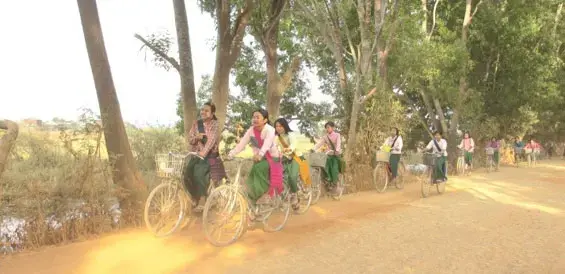In the 2018 gender inequality index, Myanmar ranks as 148 of 189 countries.* The Myanmar government is a signatory to the Convention on the Elimination of All Forms of Discrimination against Women (CEDAW), the Beijing Platform for Action, the International Conference on Population and Development and the Millennium Declaration.
Nevertheless, there are gender inequalities in legislation, access to economic opportunities and political representation in Myanmar. In addition, the knowledge and involvement of men in family planning, safe motherhood and HIV prevention is limited. Women have little negotiation power for condom use to avoid contracting HIV even if they suspect their partners of having sex outside their relationship. There is a lack of open spousal communication about sexual matters and HIV/AIDS among the majority of the population. A shortage of gender statistics and research, a lack of awareness, and limited institutional capacity hinder the development and implementation of effective policies and programmes for the empowerment of women.
The National Strategic Plan for the Advancement of Women 2013-2022 outlines an integrated approach to improving the situation of women and girls in Myanmar. The plan provides an overarching framework, and details interventions and targets. The plan aims to create enabling systems, structures and practices for the advancement of women, gender equality, and the realization of women's rights.
UNFPA Activities
UNFPA works together with the government, other UN agencies and local organizations such as the Myanmar Women Affairs Federation. UNFPA supported the development of the National Strategic Plan on Advancement of Women, especially in the areas of women and health, women and emergencies, women and human rights, violence against women, and the girl child. By supporting the operationalization of National Strategic Plan on Advancement of Women, UNFPA supports the right of women and couples to freely and responsibly decide the number and spacing of their children.
UNFPA co-chairs the UN Gender Theme Group and the government-led Gender Equality and Women Empowerment Working Group, which contributes to national coordination.
Reference
* Human Development Report 2018



